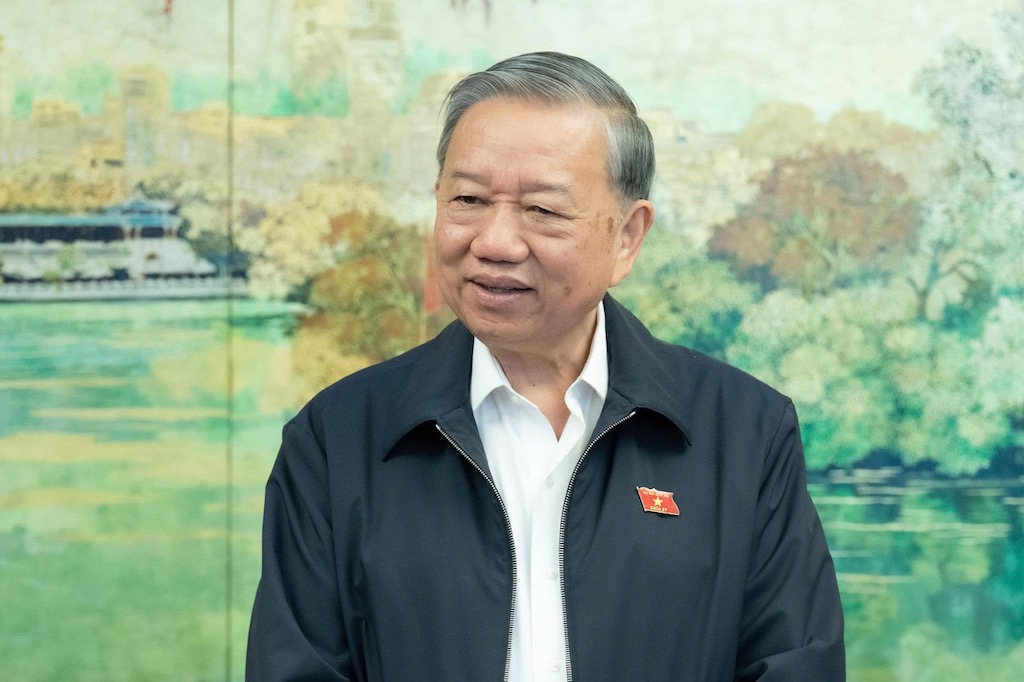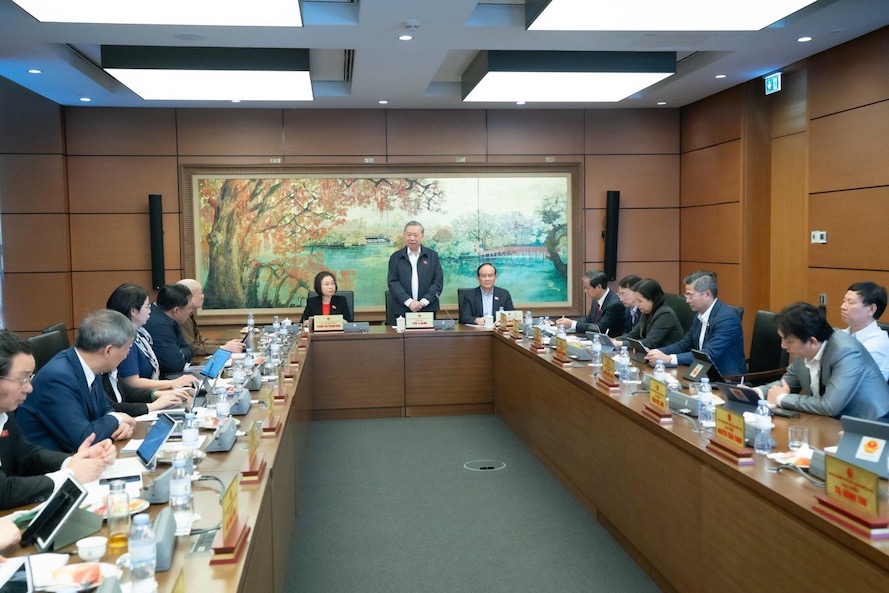On the morning of November 25, the National Assembly discussed in groups the investment policy for the National Target Program on modernization and improvement of the quality of education and training for the period 2026-2035; the investment policy for the National Target Program on health care, population and development for the period 2026 - 2035.

Speaking at the meeting, General Secretary To Lam affirmed that culture, health and education are important pillars of society. This is not only a goal but also a driving force for human resource development - one of the three breakthrough focuses. Human resources must be strong in health, have courage, thinking, knowledge and enlightenment.

The General Secretary said that to achieve the goals set for the next 20 years, we must take care of them right now, so that future generations are capable of continuing to build and protect the country. However, he emphasized the viewpoint of "how to grow, how to be stable, but the people must benefit".
Regarding the name of the program, the General Secretary noted that the "national goal" reflects the responsibility of the whole society, not limited to one sector.
However, he noted that there are currently many overlapping national target programs, dispersed resources, many projects, many management boards, taking time but the results are not as expected. Therefore, it is necessary to review the scope, avoid duplication, and clearly identify the host agency.
The General Secretary suggested that some goals related to mountainous areas, rural areas or areas with difficulty can be integrated into the mountainous development program to focus resources, avoiding the situation of " putting everything into national goals" but in the end, not having clear responsibilities.
In health and education, the General Secretary said that there is much work to be done. In which, three factors need to be invested synchronously are: Infrastructure; team of teachers and doctors; training program. Infrastructure must be guaranteed. The team must be standard, well-trained, have ethics and personality. Training programs must always be updated, in-depth, and suitable for the speed of change in scientific knowledge. Like in healthcare, even after many years of studying, we still have to continuously train and update, because knowledge is always developing.
Speaking about each field, with health, the General Secretary requested that the program clearly identify which outstanding results the sector must achieve by the 2030-2035 period, not just regular tasks. In particular, it is necessary to pay attention to primary health care and prevention. Currently, medical work is still focused on medical examination and treatment - that is, handling the consequences due to weak prevention.
The General Secretary requested that there should be solutions and plans to completely handle infectious diseases such as tuberculosis, malaria, hepatitis, etc. Not to let them persist for a long time, causing waste for the entire system. At the same time, it is necessary to address the underlying causes of diseases such as polluted environment, clean water, and food hygiene and safety. He said that if the above fundamental problems were not addressed, " how many hospitals can be built and how many doctors can be trained will not be enough".
The General Secretary also paid special attention to the current problem of abandoned children. He cited statistics that every year, hundreds of thousands of children are abandoned by their parents and have to seek social protection, in which public facilities can only take care of 3% - a very small proportion and mainly receive sick children.
While the current policy is inadequate: Children entering public facilities are subsidized but when encouraged to adopt relatives, they are not supported. This makes many families hesitant, while society needs to join hands so that no child is left behind...
The General Secretary raised the issue that each administrative unit needs to have a medical and educational facility. Citing data from the Government's Planning to strive to reach 19 doctors/10,000 people by 2030, the General Secretary suggested the issue of "one commune can have one hospital".
In the field of education, the General Secretary expressed concern about the current situation of scattered schools causing waste: In some places, there are very few students but many teachers, especially, there are schools with 5-6 students but up to 10 teachers. From this reality, the General Secretary suggested calculating more suitable models, such as collecting school scores, developing boarding schools so that students can study in a better environment and effectively use resources.
In border areas, there is a shortage of facilities, the rate of solidification is not substantial, the General Secretary requested to prioritize proper and standard investment.
Items that seem unnecessary in mountainous areas, such as swimming pools, are also very important because they are associated with life skills and safety, ensuring the right to enjoy fair learning conditions among students in different regions. In addition, the living conditions of teachers in disadvantaged areas also need attention because they are contributing their youth in areas with great poverty.
The General Secretary affirmed that the country's development goals are closely linked to education and science and technology. From preschool to postgraduate level, it must be a continuous training cycle, creating a highly productive human resource. Without adequate investment in education, it is difficult to create a foundation for science and technology and national development.
He also noted that the current policy is correct but needs to be detailed, avoid overlap and clearly define responsibilities to implement effectively.











